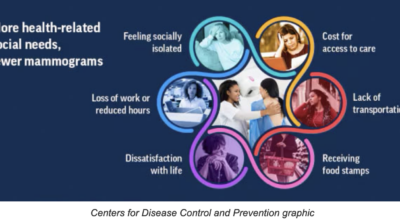Early detection key to surviving prostate cancer
Published 10:55 am Thursday, September 28, 2017
Prostate cancer is the second most common cancer in men in the world. When detected early, survival rates are better than 98 percent.
Early detection is key, because the difference between early and late detection can be life and death.
Here’s what you should do. When you’re 50 years of age, you need to have a talk with your doctor about getting PSA testing. If you have a family history, do it at age 45. Those of African descent are at higher risk and should also have the first test at age 45.
Your risk of developing prostate cancer increases with age, but that doesn’t mean it’s a disease that only affects old men. It is the second most common cancer in all men, no matter their age. Black men and those with family history are two and a half times more likely to get prostate cancer.
The PSA test is a simple routine blood test. It is the primary tool we use check for this cancer, specifically to measure the prostate specific antigen (PSA) concentration in your blood. Your doctor will tell you whether or not this testing is right for you.
Prostate cancer occurs when some of the cells in the gland reproduce far more rapidly than normal, resulting in a tumor. The cancer often grows slowly to start with and may never cause any problems.
But some men have prostate cancer that is more likely to spread. These cancer cells, if left untreated, may spread from the prostate and invade distant parts of the body, especially the lymph nodes and bones. This produces secondary tumors in a process known as metastasis.
Not everyone experiences symptoms of prostate cancer. Many times, signs of prostate cancer are first detected by a doctor during a routine check-up. Some men, however, will experience changes in urinary or sexual function that may indicate the presence of prostate cancer.
Common symptoms include, for example:
• There is a need to urinate frequently, especially at night;
• You have difficulty starting urination or holding back urine;
• There is a weak or interrupted flow of urine;
• You experience painful or burning urination;
• There is difficulty in having an erection;
• Ejaculation is painful;
• There is blood in the urine or semen;
• There is frequent pain or stiffness in the lower back, hips, or upper thighs.
There are a variety of treatment options. Testing cannot tell us everything about how aggressive the disease is, what your prognosis may be, and how the disease will progress. If you have been diagnosed with prostate cancer, it’s important to keep in mind that many are slow growing and may not require surgery or other radical treatments.
Be comfortable and secure in the treatment decision you and your doctor make as you take the risks and benefits into consideration. Learn all you can and make use of every resource and service available. Depending upon the treatment you choose, you may experience side effects that have different durations for different people.
As many people who have been through this will tell you, prostate cancer isn’t just a man’s disease, it’s a couple’s disease. It can have a serious impact on intimate relationships so make sure you involve your partner as you think through the treatment options.
Please feel free to join me for our Lunch & Learn program this Friday at noon at the Harlan Depot as I discuss this subject and perhaps other medical issues of interest to you.
Seymour Kilstein, DO, is a urologist at the ARH Daniel Boone Clinic






